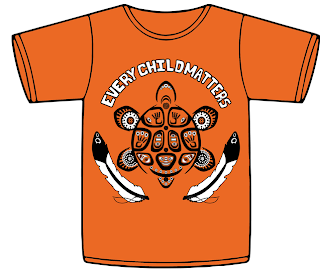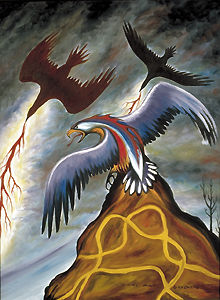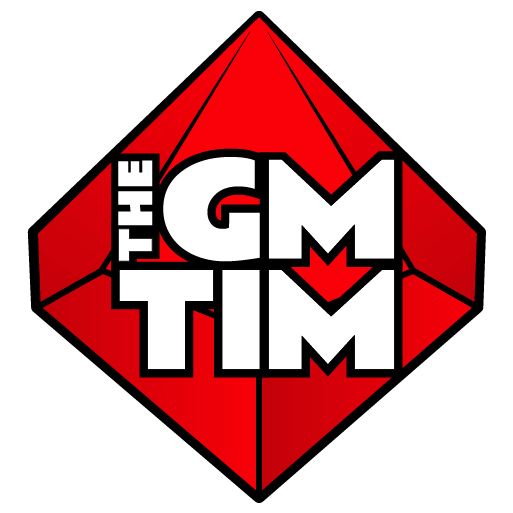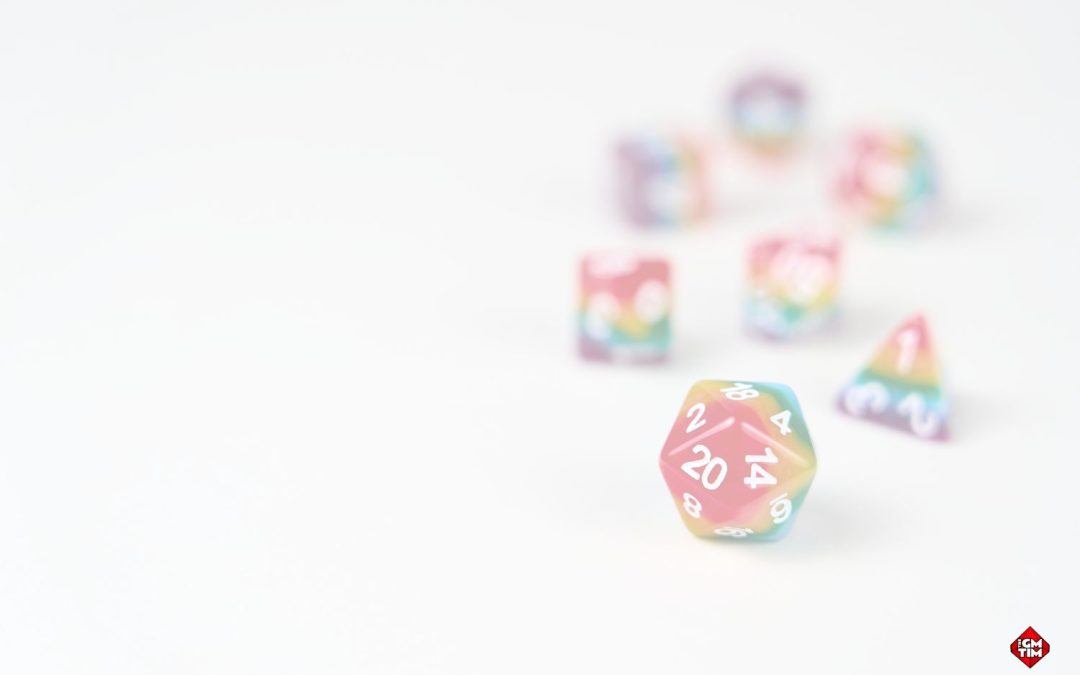Updated on:
Sept 30, 2025
Origiannly Posted:
Sept 30, 2024
I do most of my writing from the unceded lands of the Qayqayt first nation, among the hən̓q̓əmin̓əm̓ (Halkomelem) speaking peoples.
Land acknowledgements are in the credits of every module I write, and I have begun to give them at the small handful of panels or formal events I attend. Doing a land acknowledgement is essential to my own process of decolonizing and leading by example. It allows me to show respect for the peoples the land was stolen from, it keeps me a little more grounded and mindful of the privileges I have, and it reminds me of the ongoing realities of colonialism that persist in the spaces we inhabit, and in my case, the stories we tell.
This isn’t a ‘Top 5’ list. It is not short, snappy, or written for clicks. This is a space to share what I have learned, considered, and strive to unlearn in my journey of deprogramming my colonized beliefs. I hope you take the time to read it, share it, and consider what you need to do for yourself.
Though I am queer and low-income, I still come from a place of white cis-male privilege. I learned from the mistakes I made lessons presented to me on topics of racism and privilege. I want to be part of a gaming culture, and society at large, that learns from the horrors Indigenous peoples and other marginalised groups have endured at the hands of my cultural ancestors and the country I live in. I endeavour to contribute to ending these harms, ensure we don’t repeat them, and inspire the change I wish to see in the world.
Why Are You Writing About Decolonizing Now?

September 30 is National Day for Truth and Reconciliation in Canada. This fairly new (2021) federal government holiday “honours the children who never returned home and Survivors of residential schools, as well as their families and communities.” This is the fifth National Day for Truth and Reconciliation and a year since I wrote this article. I wanted to update it, make sure all the links still work and continue exploring reconciliation in my tabletop role playing games (TTRPGS).
Here’s some links to learn more about the residential schools, the Truth & Reconciliation Commission, what the Canadian government has done, What the Province of BC did, and where the governments are still lacking.
Whether we like it or not, colonial narratives are deeply embedded in our craft. Land acknowledgements, the care I take in curating a diverse list for Appendix Lit, and making an effort to remove racially based conflicts from my adventures, are all things I can actively do to help decolonize my games and table while making space for diverse voices, stories, and new ways of thinking.
What Does it Mean to Decolonize a Game?
According to the Cambridge Dictionary: Decolonization is “the process of changing something such as a curriculum…in a way that considers the cultural beliefs behind it, for example the belief that European writers, artists, or ideas are better or more important than ones from countries that were colonized…by Europe.” In the context of TTRPGs, such as D&D, this process begins by being mindful of things like:
- Who was in control of the writing and/or design?
- How could or did that change what was written?
- What may have been omitted or altered to fit a Eurocentric narrative, intentional or not?
- What has the content creator done to address their own awareness?
You might think, So what? Why do these questions matter?
When we stop asking questions, fewer answers are considered. This perpetuates narrow thinking and incorrect beliefs.

That Feels a Bit Exagurated Doesn’t It?
Here how you can see the ignored. Open your search engine, it doesn’t matter what you use, we’re going to do a couple searches.
For the first, do an image search for Castle.
Do you see Castles from non-European nations? I bet European castles dominate the results, while those from Africa, West Asia, and East Asia are largely absent.
Here’s another. Search “most international goals soccer”
It is probably listing Ronaldo, Messi, all great. Also, false. The world record of 190 international goals belongs to the legendary Christine Sinclair, even retired in 2024 she is still fields ahead of Ronaldo with 141 at the time of re-writing this in Sep 2025.
Asking the questions matters. Where the representation comes from matters.
This same narrowing of perspective shapes how fantasy worlds are imagined. Because diversity was lacking when the algorithmic coding and decoding of our technology was created, it now has a specific point of view. What we are presented, even without AI, is not always accurate, nor the only way to see things. This isn’t about erasing fantasy traditions. It’s about broadening them. In gaming this translates to Non-Eurocentric mythologies and worldviews getting ignored, oversimplified, or whitewashed into colonial tropes like “noble savage” or “untamed wilderness”.
While I am not a colonized person, I still understand the importance of representation. I want to see queer people play queer roles in TV and movies, rather than having straight actors fill those roles. We should all understand why it’s no longer acceptable for casting choices like Mickey Rooney playing a Japanese landlord or Alec Guinness as Prince Faisal. The argument “whoever is good for the role should get it” relies on equanimity and ignores the fact that white, straight men are given far more opportunities, meaning fewer non-white actors get a chance to show they are good for a role.
How to Approach Decolonization in Games
Decolonizing TTRPGs means giving opportunity for these voices to represent themselves. There needs to be more attention and thought in who is making and presenting the games. By consciously including voices, stories, and perspectives from diverse cultures, we open space for more authentic and respectful self representation.
D&D’s 5.24 system has made a few efforts to move away from these tropes when they changed race to species and the overdue conversation about savages and half-orcs. However, we still lack progress in challenging power dynamics of creators, conventions, and publishers
On a creator level we need more consideration of writers and designers being brought into projects. The last few years has seen a push to broaden diversity within the performance, writing, and designing pools—though adding one to a pool of twenty does not make it diverse, and far more work needs to be done. Conventions seem to still make an effort to diversify, though in the last ten years that feels like it has gone in the opposite direction. As for publishers, when buying products, we can make a point of buying ones that employ diverse creators. By being more aware, diversifying your storytellers, and putting pressure on game companies to diversify their writers, can appropriately adjust these narratives.
Real Power
Publishers and companies matter, the real power is us. Game Masters, Dungeon Masters, Storytellers, Narrators, and the players that sit at our tables. We have the ability to include reconciliation and decolonization at the table through the stories we tell and the worlds we craft. Not just because we decide what is presented and what isn’t, because we also determine the space for others to offer new inclusive ideas into our shared world. The more we do this at the table the more it flows out to our lives.
Here are a few things I have learned to help me decolonize and diversify my written modules, TTRPG games, or even reading and learning new plots.
- Reflecting: on the narratives and structures present in your games. Are specific cultures or people always cast as other or savage? Is the land viewed as something to be conquered or exploited? If there is conflict, what is its source?
- Centering: on Indigenous, Black, and marginalized voices. At the very least ensuring respectful accurate representation when telling stories that touch on real-world cultures. Learning from these voices helps break down harmful stereotypes and build more authentic, inclusive stories
- Challenging: power dynamics, resource exploitation, and other colonial themes that often appear in fantasy settings.
- Embracing: collaborative storytelling honours multiple perspectives. Invite players to share their own insights or backgrounds when crafting game narratives. Inspire yourself by reading non-Eurocentric novels, and look at different ways non-Eurocentric cultures interact.
None of this is easy. Self-awareness is really hard. You will make mistakes learn new things. I imagine it could lead to some uncomfortable, and valuable, conversations with yourself and others you trust. I’ve had some great people in my life who have let me ask questions, then let me awkwardly and safely find the answers with their guidance. I didn’t rely on them to educate me; I listened and unlearned forming new views on the world. Sharing our insights and learning from others is an important part of this journey.
It Doesn’t End Until It Does
Since I have started to pay attention to and let myself be aware of these systemic things. I have started to see stories in a different light. It has only made my games better. Like leveling characters in our most epic campaigns, reconciliation and decolonization is a long, continuous process of learning and growth. It’s not going to be easy. You’ll make mistakes, and you might upset people. Keep yourself open to feedback, commit to evolving your stories, and really foster respectful gaming spaces. That’s how we continue down the path to reconciliation and decolonization.
In this journey, they are the true Main Characters—not NPCs that can be sidelined. Like every great GM your role is to celebrate and support their story by making sure they’re given the space and attention they deserve.
Your Turn: Resources for Further Education
I’ve also compiled this small list of resources to help start your path towards decolonization, one I am still on. Honestly, I probably will be forever.
- This is a brilliant compilation of articles about decolonizing your games. There is a lot to read and learn from.
- Coyote & Crow is a fantastic Indigenous TTRPG world written and created by an indigenous led team. It’s a GREAT game. 100% Recommend.
- This Instagram feed on African mythology is amazing, and their art is stunning.
- Breaking Media Stereotypes with Indigenous Storytelling | United Nations
- It Takes More Than a ‘Tolerance’ Mechanic to Make an Anti-Colonial RPG
- Iron Dog Books | Orange Shirt Day




Just found this, an an Asian-American (South Asian-Indian) who grew up in Europe, I can relate so much. It has been difficult to explain so eloquently how I’ve felt about the high fantasy setting, and you’ve only barely touched the surface! This page is such a good resource for me to send people.
I am really honoured you find this useful.
Thanks for your kind words.